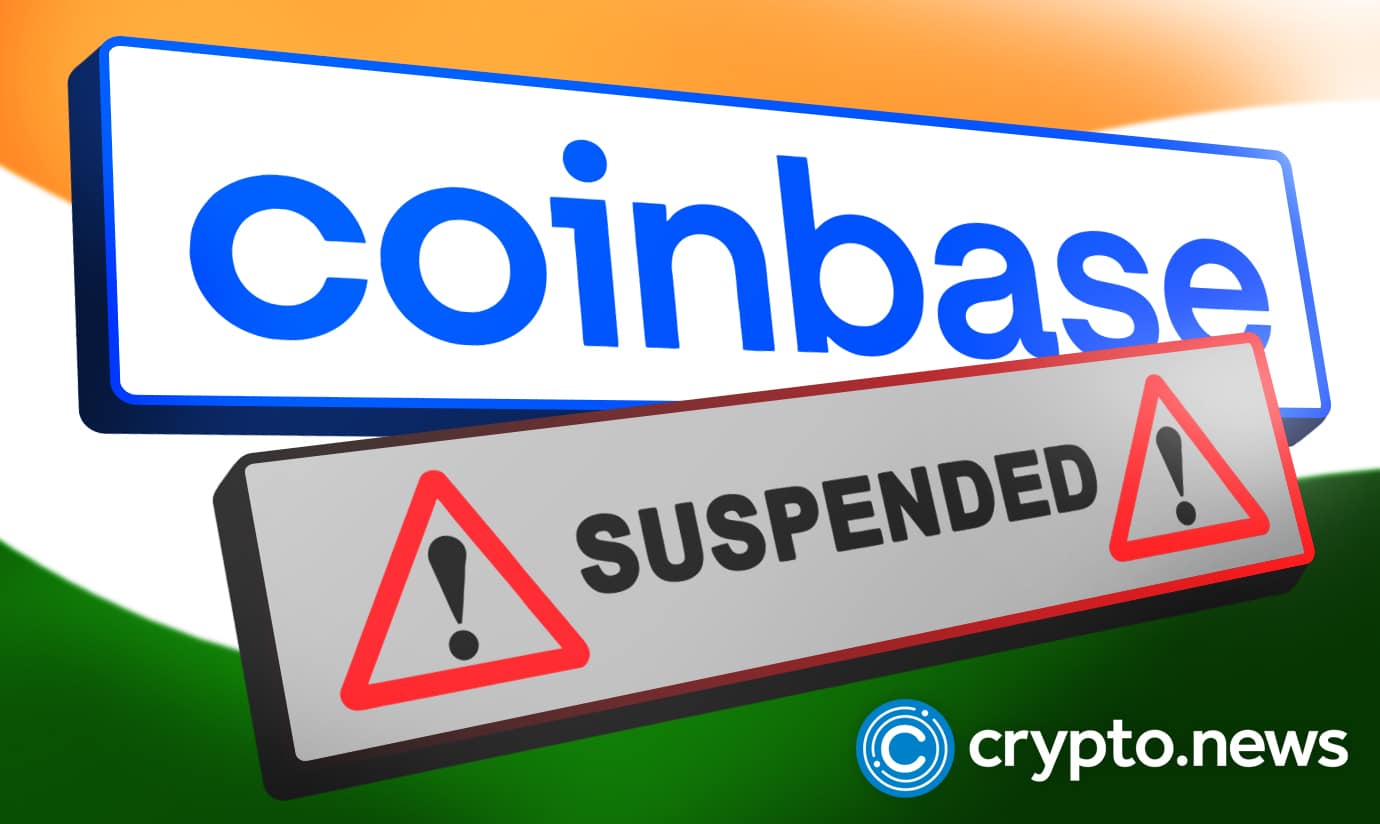Coinbase Pauses Cryptocurrency Payment Services in India Just Days after Launching in the Country

Coinbase has ceased all cryptocurrency transactions following Mobikwik’s withdrawal of support for United Payments Interface (UPI) payments from all crypto exchanges in India. The news surfaced three days after the largest US-based crypto exchange launched its services in India.
Coinbase Reacted in Response to NCPI Statement
For Indian clients, the exchange has changed its preferred payment information on its website, and they’re presently unable to acquire cryptocurrencies with UPI as a payment option.
The announcement from the NCPI organization, a special section of India’s central bank, clarified why other crypto exchanges in India have struggled to offer UPI, the most common method of online payment in India. The UPI payment system, which enables buy orders for the company’s India services, is governed by the National Payment Corporation of India (NPCI).
Coinbase responded swiftly to the NPCI statement, noting that the cryptocurrency exchange platform is dedicated to honoring India’s norms and regulations. For any transactions, Coinbase recommended clients to use the Immediate Payment Service (IMP).
MobiKwik’s E-Wallet Option Disabled
India’s crypto exchanges seem to face challenges every new day obstructing their progress.
Effective April 1, MobiKwik’s e-wallet services on all major cryptocurrency firms in India are no longer available. Although the Mobikwik option may still be visible on some of the exchanges, there are no services being rendered. The MobiKwik e-wallet was also one of the options for moving funds to a crypto exchange.
Coinbase Plans to Expand its Outreach in India
Brian Armstrong, the Coinbase founder, recently revealed that his firm plans to increase crypto investments and hire more technicians in India.
The firm’s India tech hub now employs 300 full-time employees, planning to hire over 1,000 more this year. The startup’s venture capitalist division, Coinbase Ventures, has already financed $150 million in homegrown Indian technology startups in the crypto and Web3 field, according to the organization, and is looking for new ways to assist Indian innovators scale.
India’s State of Crypto Regulation
Indian crypto traders are probably used to trading service accessibility being unstable at this stage. The sudden stoppage of Coinbase service does not appear to bother Indian Coinbase users, according to co-founder Crypto India YouTube channel Aditya’s tweet. He claimed that it’s not a new ordeal since Indian exchanges have been having payment troubles since 2018.
The Indian government has failed to develop an appropriate regulatory framework for cryptocurrency. Its relationship with digital currencies has been hot and cold during the last few years. As of the time of writing, there’s no strict ban on their usage, and neither there is no regulation that controls their use.
India acceded to levy a 30% tax on the transfer of digital assets such as cryptos and non-fungible tokens (NFT), and also a 1% tax deduction at source (TDS) upon each transaction. While this TDS is affordable and will not give the impression of an expensive transaction, it will provide a list of those who transact in cryptos.
In contrast, as revealed in the Union Budget 2022, the government is developing its own Central Bank Digital Currency (CBDC), the Digital Rupee.
















